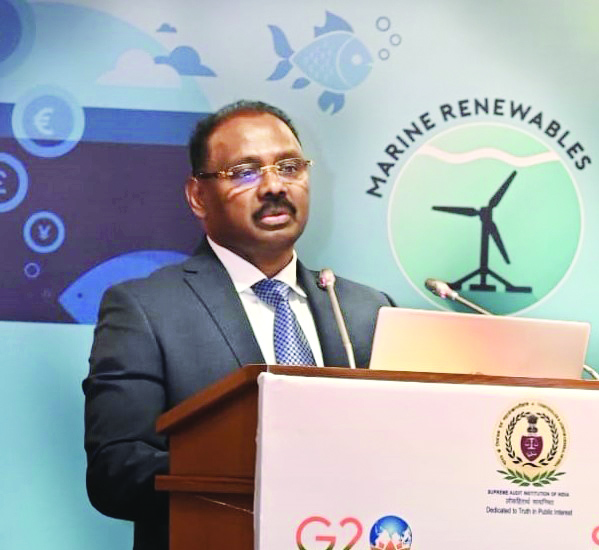Comptroller & Auditor General gears up for auditing framework of blue economy

New Delhi: The Comptroller and Auditor General (CAG) of India is gearing up to explore the process of auditing of blue economy resources as the untapped sector has a huge potential.
A framework in this regard is being prepared in coordination with heads of the Supreme Audit Institutions (SAI) of G20 countries and the final framework is slated to be announced after a round of deliberations with heads of SAI G20 nations in Goa this year. A meeting of auditing officials belonging to SAI G20 countries is also scheduled in March.
Given that auditing of ‘intricately complex’ and ‘variegated nature’ of the blue economy poses several challenges, the co-operation and knowledge-sharing among nations is vital to establish a coordinated audit response to audit of the blue economy which would strengthen good governance and public welfare, CAG Girish Chandra Murmu said at an event organised on the challenges and opportunities in the blue economy.
“The blue economy occupies a vital position in India’s economic growth. It could well be the next multiplier of GDP and well-being, provided sustainability and socio-economic welfare are kept at the centre-stage,” Murmu said.
In this pursuit, SAIs can scale up their audits, develop study papers on the condition of the blue economy and make recommendations on how the governments could direct their efforts and policies for the sustainable development of the blue economy of their nations, the CAG said, adding that SAIs would also consider developing international auditing guidelines for conducting marine audits. The CAG also stressed on bringing out joint research papers on marine health, sharing practical knowledge and expertise on auditing of Blue Economy through audit toolkits, conduct of joint co-operative- audits, etc.
Notably, India has a 7,517-km-long coastline that is home to nine coastal states and 1,382 islands. The coastal economy sustains over 4 million fishermen and other coastal communities. There are nearly 199 ports, including 12 major ports that handle about 1,400 million tonnes of cargo each year. Moreover, India’s Exclusive Economic Zone (EEZ) of over 2 million square kilometres has a bounty of living and non-living resources with significant recoverable resources such as crude oil and natural gas.



